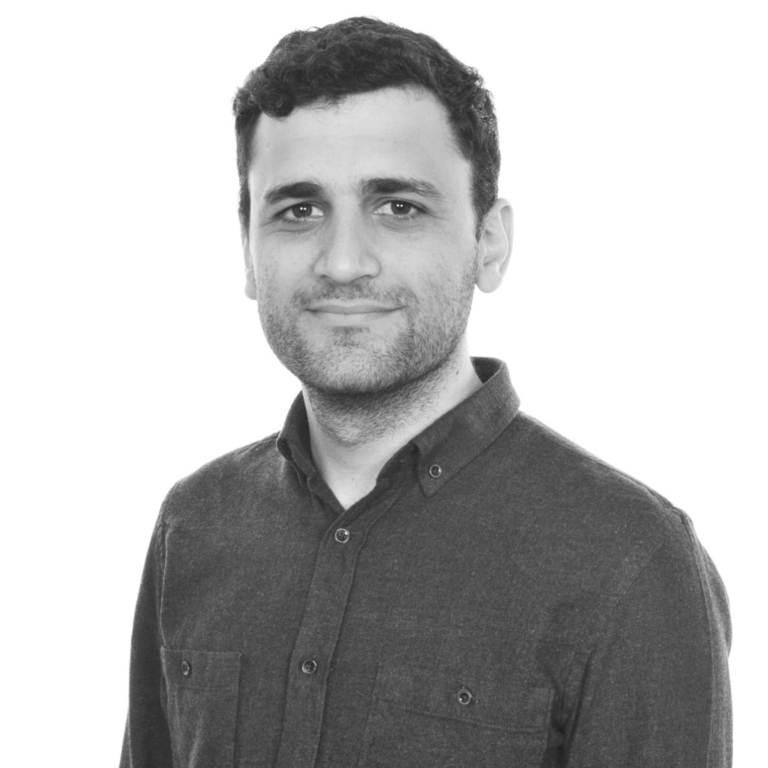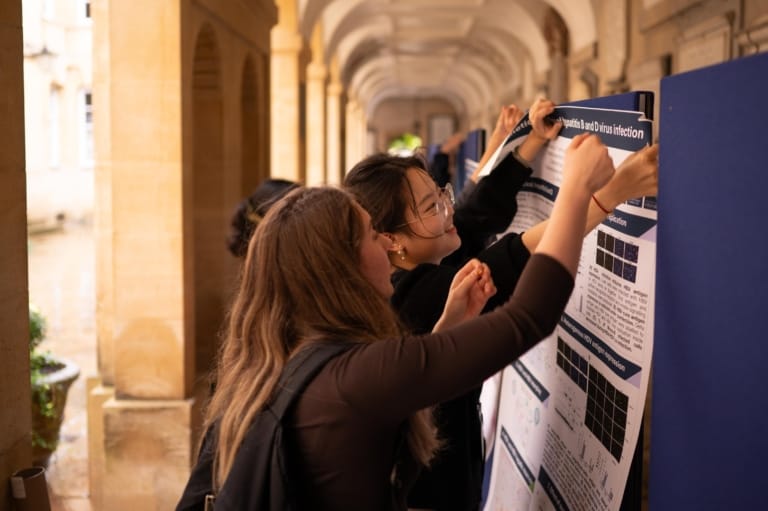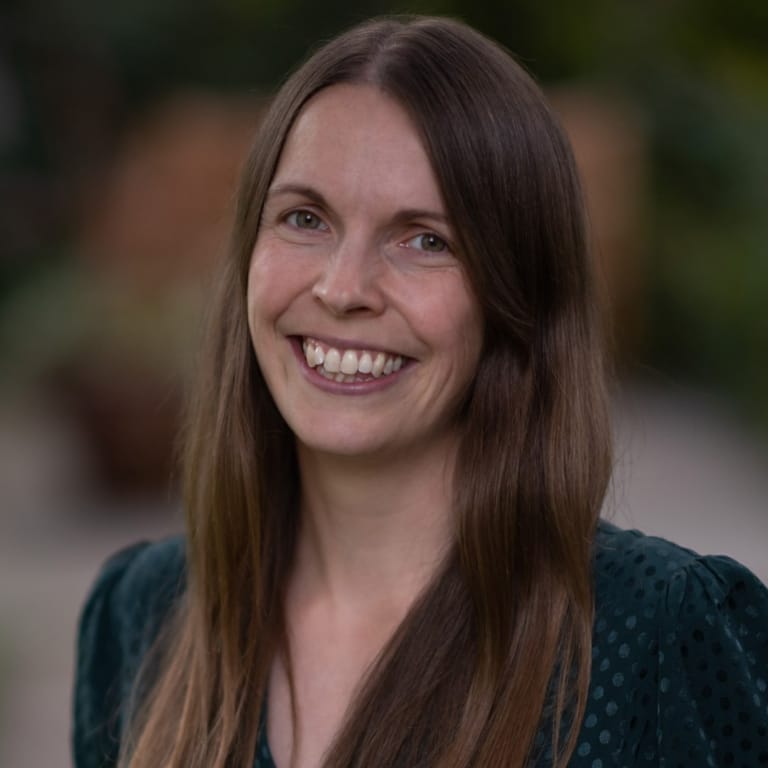The Lister Institute Annual Meeting at Corpus Christi College, Oxford is always a highlight of our calendar. It’s an opportunity for current and former Lister Prize Fellows, Summer Students and Institute Members to connect in the historic atmosphere of the college and share their knowledge and ideas. In 2024, we welcomed three ‘generations’ of Lister scientists to the event, each with a unique perspective.
2024 Lister Prize Winners and current Fellows
The majority of this year’s talks came from the new cohort of Lister Fellows who have joined the community in 2024. We were very pleased to welcome almost all of the new Lister Fellows to Oxford, with the exception of Rebecca Drummond who is on maternity leave. The group’s research interests and academic backgrounds vary from microbiology to translational medicine, and we heard inspiring dispatches from cutting-edge areas of immunology, genetic medicine and computational science.
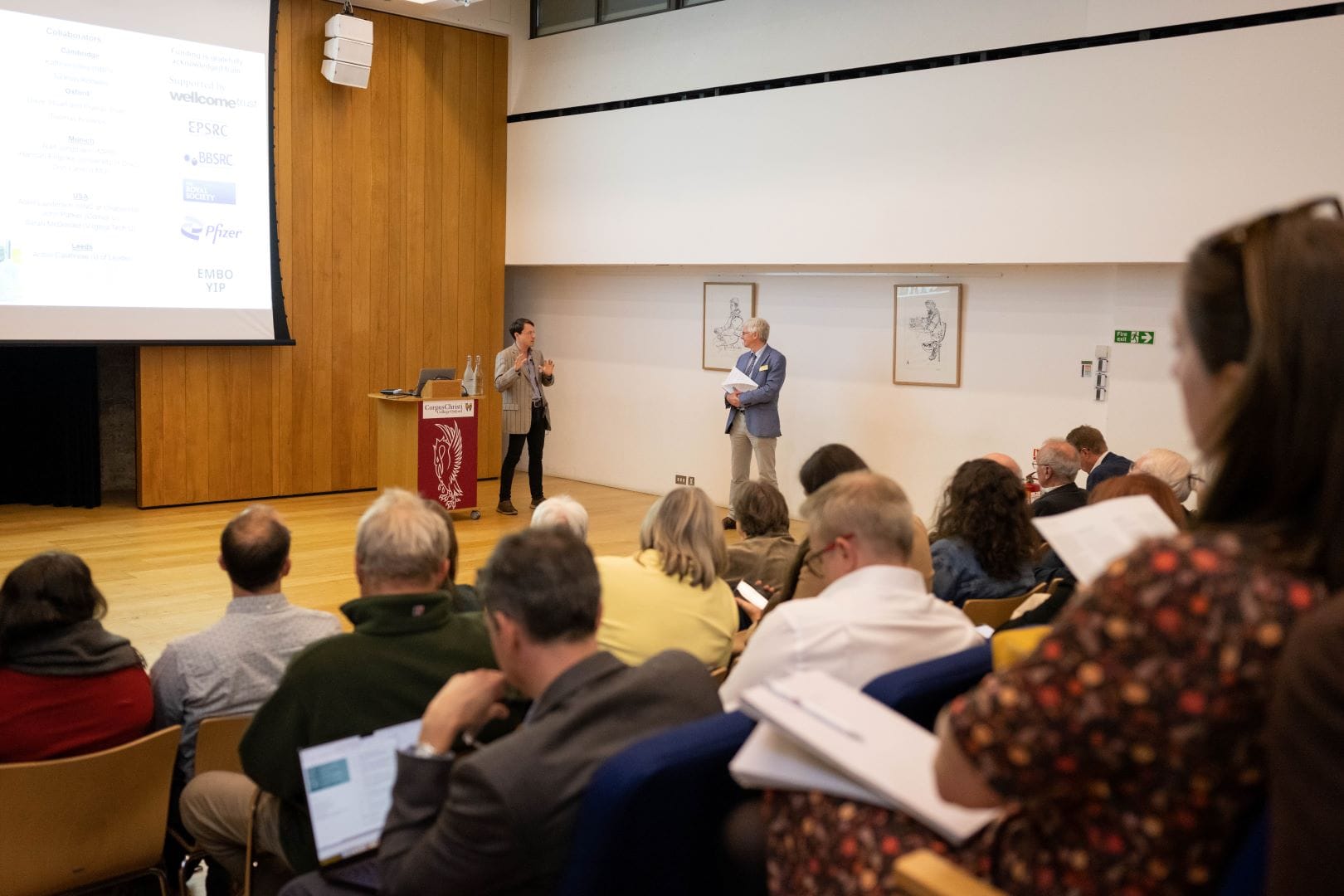
For the new Lister Fellows, the Annual Meeting comes at a time of change and forward planning. The increase of a further £50,000 to the Prize funding this year means that new research possibilities have opened up, so there is much to discuss and a general air of enthusiasm and excitement. For some, the Prize will be the catalyst to growing their lab, while for others, it will pay for new projects or expand existing research areas.
For each talk from the new Lister Fellows there were lots of questions from community members coming from different academic disciplines, reflecting the enthusiasm and interest among the audience whatever the subject matter. Attendees told us the meeting is like a ‘window’ onto other biomedical and scientific specialisms, and a rare opportunity to enrich their understanding by viewing it from these different perspectives.
Scientists of tomorrow
Our Summer Students programme brings undergraduate students together with current Lister Fellows for a summer of work experience in the laboratory. Funding is provided by the Lister Institute for up to 10 weeks. This year, 43 Summer Students took part in the programme, and 17 of them joined us at the Annual Meeting to present posters on their summer projects during a session in the historic Rainolds Room. Drinks and a buffet were served and attendees wandered among the posters, asking questions and receiving eloquent explanations of the research from the students.

For these students, the Annual Meeting is an opportunity to get a taste of the academic conference experience, which will be part of their lives in the future if they choose to pursue a scientific career. They present their work to the new Lister Prize Winners, current and past Lister Fellows and Members of the Lister Institute – some of whom will be potential mentors or employers in the future.
Many of this year’s students told us that the summer of lab work gave them the insight they needed to choose whether to move on to a PhD or further study. For their supervisors, the addition of an enthusiastic team member over the summer months was a big positive, and several of the Lister Fellows who participated hope to welcome their Summer Students back for a PhD in the future.
Senior leaders
The annual meeting is a regular event for many former Lister Fellows and Committee Members who are further advanced in their careers and have achieved huge progress in their chosen fields. These leaders have changed the face of research in many cases, influencing the lives of countless patients, doctors and junior researchers.
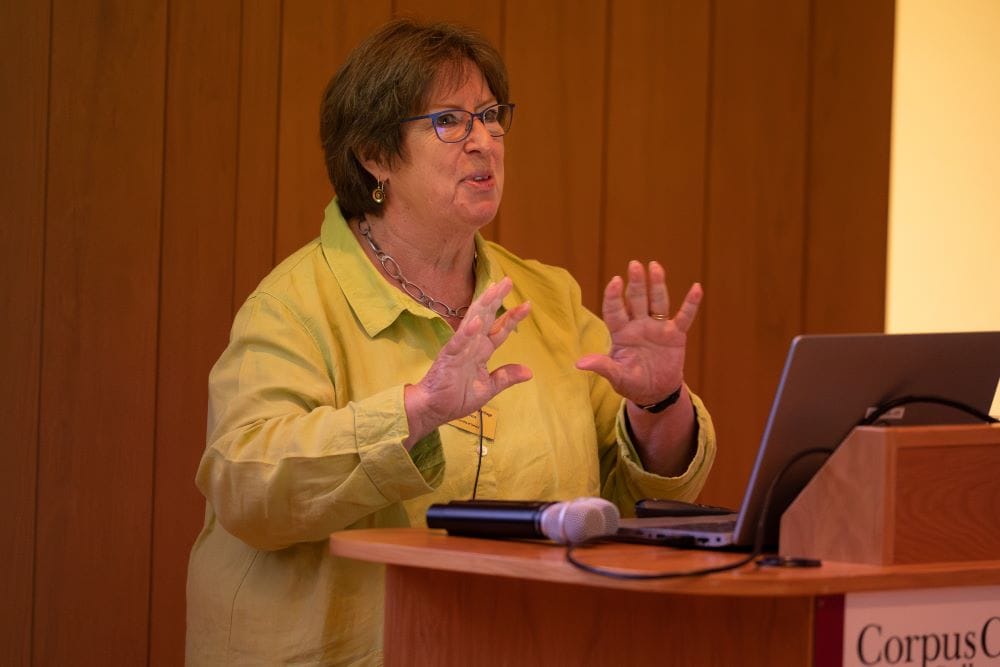
This year, we had the bittersweet pleasure of hearing from members of the community who are retiring from their roles at the Lister and reflecting on long and illustrious careers. Two fascinating talks from geneticist Professor Wendy Bickmore and biochemist Professor Judy Armitage showed what can be achieved over the decades, but also the need for determination, faith and hard work even in the face of adversity.
For both scientists, a passion for discovery and a need to answer fundamental questions were driving forces in their careers. Wendy and Judy have both seen the world of science change over time, mostly for the better. Their stories reflected the progress made towards inclusivity and gender parity in the academic world, as well as the enormous impact made by advances in technology and patient care.
We also heard from senior researcher and clinician Professor Danny Smith, who walked us through his research on sleep-wake cycles and seasonal change in severe mental health conditions. He put forward the persuasive case that circadian dysregulation, rather than mood, is the primary nature of bipolar disorder. In addition to his work on light sensitivity and chronopsychiatry, Danny is currently leading a new and ground-breaking Hub for Metabolic Psychiatry at the University of Edinburgh, which places patient experiences and voices at the heart of its research.

